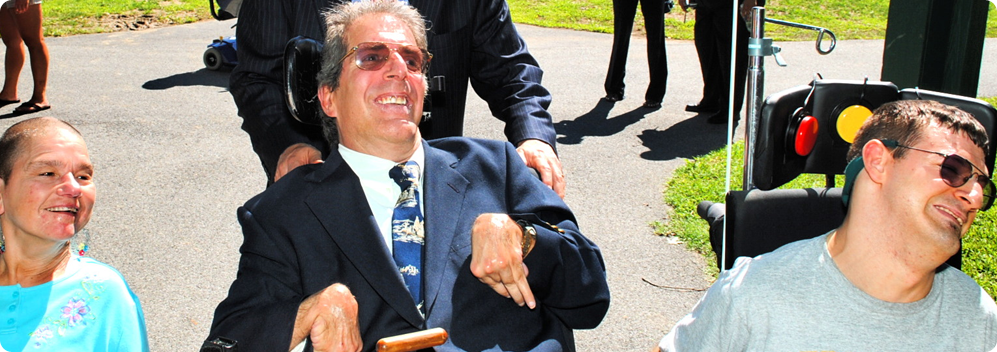Leave A Lasting Legacy
 Able Foundation is dedicated to developing our services further to ensure that we are able to offer increased choices and more opportunities to people with learning disabilities, both now and for generations to come.
Able Foundation is dedicated to developing our services further to ensure that we are able to offer increased choices and more opportunities to people with learning disabilities, both now and for generations to come.
There are many ways to help, but have you considered how worthwhile it would be to include Able Foundation in your Will. Whatever you feel able to give will make such a difference in the lives of the people who use our services, now and in the future.
Quite rightly, your family will be your first priority; you will, of course, want to provide for their future security. However, having done this, many people still feel able to include a gift to a charity, like Able Foundation.
So, when the time is right for you to consider making or updating your Will, please consider including a legacy to Able Foundation. To help you, we provide the words that your solicitor will require.
We strongly recommend that you use a solicitor to draw up your Will, but to help at the initial planning stage; Able Foundation publishes a free guide to leaving a gift in your Will. To obtain a copy, click here to download
If you have chosen to leave a gift to our charity in your Will, we would like to say thank you. Please do not hesitate to contact us if you need a list of solicitors in your area or would like to discuss any particular requirements you might have if you are considering remembering Able Foundation in your Will.
Email legacy@ablefoundation.org.uk
Frequently asked questions about Wills
- Why do I need a Will?
- How do I make a Will?
- What can I say in a Will?
- How much does it cost to make a Will?
- What are the different types of legacy?
- Will I have to pay inheritance tax?
- Why should I keep my Will up to date?
- How do I amend my Will?
Why do I need a Will?
By making a Will, you can ensure that your possessions are passed on to the people and charities that you have chosen. If you do not have a Will, the state will decide how your property should be distributed.
We suggest that you choose a solicitor to write your Will. If you don’t know any solicitors, we recommend you call the Law Society on 0870 606 2555 or visit www.lawsociety.org.uk
You should be clear about the amount and type of gift you would like to leave to your beneficiaries. Before consulting a solicitor, consider the value of your possessions and decide what you would like to leave, and to whom. Able Foundation’s ‘Valuing your assets’ form can help you do this.
What can I say in a Will?
When you make a Will you can say how you would like your financial affairs to be dealt with after your death. But Wills are not just about money. For example, you can also use your Will to say what kind of funeral you want and if you would like donations at your funeral to go to a charity you’re passionate about. If you have legal responsibility for a grandchild or child you can name guardians for them and you can arrange for the care of pets.
How much does it cost to make a Will?
Solicitors’ fees for Will writing vary from firm to firm and also according to the complexity of the Will.
As a rough guide it could cost around £100 plus VAT for a straightforward single Will and £160 plus VAT for a straightforward mirror will. Comparative costs can be obtained easily by phoning a few solicitors in your area.
What are the different types of legacy?
A residuary legacy is the gift of the remainder of your estate (or a percentage of the remainder) after all other gifts to friends and family have been distributed and all outgoings have been dealt with.
A residuary legacy is especially valuable to Able Foundation because the growing value of your assets protects it against inflation.
A pecuniary legacy is a fixed sum of money that tends to decrease in value over time because of inflation. For example, a legacy of £1,000 written into a Will in 1980 would now be worth less than £380. However, it is possible to index-link a pecuniary legacy, to ensure that the legacy maintains its intended value.
Will I have to pay inheritance tax?
Taxation rules change frequently. Your solicitor can provide Will tax-planning advice or arrange for the services of an accountant or tax adviser. A Will can allow you to take tax into account and maximise how much you leave to others. For example there is currently no inheritance tax payable on a gift left to charity in your will and if you leave 10% of your estate to charity, your IHT liability reduces from 40% to 36%.
Why should I keep my Will up to date?
Once a Will has been made, it is important to keep it up to date and account for any changes in your circumstances. For example, you may now have had a child or grandchild, you may have moved home, or your financial situation may have changed. It is also advisable to reconsider the contents of your Will regularly to make sure that it still reflects your wishes.
How do I amend my Will?
A codicil is an addition to a Will that states any changes you wish to make, and is easily made by a solicitor. Adding a codicil to your existing Will may be a simple way for you to leave a legacy to Able foundation.
However, if you are making significant changes, it is advisable to make a new Will. The new Will should start with a clause stating that it revokes all previous Wills and codicils.
If you’re updating an existing Will, you can download a sample Codicil form.



